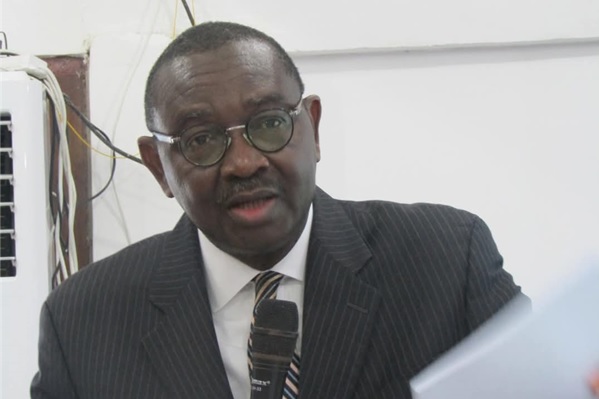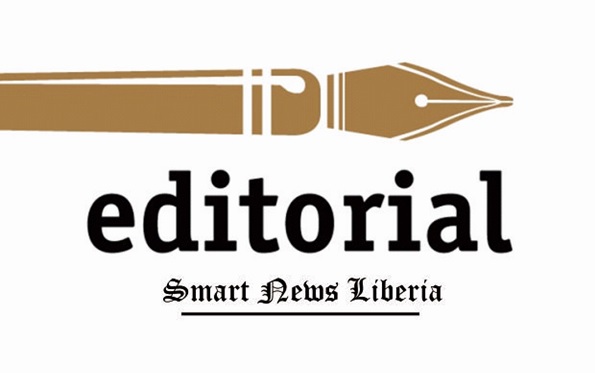MONROVIA, LIBERIA – The power struggle within the House of Representatives has escalated following a landmark Supreme Court ruling on December 6, 2024. The dispute pits Speaker Cllr. J. Fonati Koffa against a majority bloc, with disagreements over governance and procedural issues causing a legislative deadlock. In a bid to provide clarity on the implications of the Court’s decision, Justice Minister and Attorney General Cllr. Oswald Tweh issued a detailed legal opinion on December 10, 2024, addressing how the ruling impacts the legislative process and the passage of the 2025 National Budget.
The conflict began when allegations of corruption and conflicts of interest were levied against Speaker Koffa, prompting the majority bloc to demand his resignation. Koffa refused to step down and continued presiding over House sessions. In protest, the majority lawmakers boycotted meetings chaired by Koffa, preventing the House from reaching quorum for more than 15 sessions. This impasse brought legislative proceedings to a standstill, raising concerns about the government’s ability to address pressing national issues.
Determined to fulfill their constitutional responsibilities, the majority bloc began convening separate sessions to carry out legislative business, including deliberations on the 2025 National Budget. These actions, however, were met with resistance from Speaker Koffa, who filed a petition with the Supreme Court. Koffa argued that the majority bloc’s actions were unconstitutional and violated House procedural rules, citing Articles 20 and 49 of the Liberian Constitution.
The Supreme Court’s ruling established its jurisdiction over the case and addressed the quorum requirements for legislative proceedings. The Court reaffirmed that a simple majority constitutes a quorum, even in the absence of all members. It also clarified that the absence of the Speaker does not prevent the House from conducting business, provided certain procedural conditions are met. These include the presence of a quorum, a presiding officer, the Sergeant-at-Arms declaring the session open, and a prayer by the Chaplain.
In response to the ruling, Attorney General Cllr. Tweh issued a seven-page legal opinion to Minister of State for Presidential Affairs Sylvester M. Grigsby, analyzing the constitutional implications of the Court’s decision. Tweh’s opinion supported the majority bloc’s actions, arguing that they were consistent with constitutional requirements. He stated that the Deputy Speaker is authorized to preside over House sessions in the absence of the Speaker, as outlined in Articles 33 and 49 of the Constitution.
Cllr. Tweh emphasized that the framers of the Constitution intended for governance to continue without obstruction, even amid political disagreements. He warned against interpretations that would paralyze legislative operations due to the absence of a single official, noting that such an approach would undermine the principles of good governance and democratic continuity.
The Attorney General also addressed the issue of the 2025 National Budget, a matter of national urgency. He affirmed that the majority bloc’s actions, including their work on the budget, were legitimate because they met the quorum requirements specified in the Constitution. Tweh argued that legislative functions must proceed to address the needs of the Liberian people, regardless of internal disputes within the House.
Despite the comprehensive nature of Tweh’s opinion, it has generated substantial controversy among lawmakers and legal experts. Sinoe County Senator Cllr. Augustine S. Chea was among those who publicly disagreed with Tweh’s interpretation. In a strongly worded critique, Senator Chea argued that the Attorney General’s analysis misrepresented the Supreme Court’s ruling and the constitutional provisions at issue.
Chea expressed disappointment in the reliance on Tweh’s opinion to validate the majority bloc’s actions. He criticized his Senate colleagues for using the opinion to recognize the majority bloc’s authority, describing it as a setback for the rule of law in Liberia. According to Chea, the Attorney General’s interpretation undermines the constitutional balance of power and sets a dangerous precedent for future political conflicts.
The senator also took aim at the Supreme Court, accusing it of issuing an ambiguous ruling that has fueled the ongoing dispute. Chea argued that the Court’s failure to provide a clear and straightforward decision has left its ruling open to misinterpretation, further exacerbating tensions within the House. He described the situation as a reflection of broader challenges facing Liberia’s legal and democratic institutions.
The disagreement over the Attorney General’s opinion highlights the difficulties of interpreting constitutional provisions in a divided political environment. While Tweh’s analysis aims to ensure legislative continuity, critics like Senator Chea believe it risks undermining the integrity of Liberia’s democratic processes.
As the House moves forward with the 2025 National Budget and other legislative priorities, the implications of the Supreme Court’s ruling and the Attorney General’s opinion will likely shape the governance scene. The resolution of this conflict will be a critical test for Liberia’s legal and institutional frameworks, with potential ramifications for the country’s stability and democratic governance.
The ongoing crisis has also raised questions about the comprehensive role of the judiciary in resolving political disputes. Some legal experts have called for reforms to ensure that judicial decisions provide clear guidance in politically sensitive cases. Others argue that the current situation emphasises the need for stronger institutional mechanisms to address conflicts within the legislature.
In his closing remarks, Attorney General Tweh reiterated that the actions of the majority bloc were consistent with constitutional standards and reflected a commitment to fulfilling their legislative duties amidst political challenges. He urged all parties to prioritize governance and work together to address the pressing issues facing Liberia.
Meanwhile, Cllr. Gabriel Nah has weighed in on the debate, stating, “The lingering tensions within the House of Representatives pose a significant challenge to the country’s legislative and democratic processes.” He added that Liberians are closely monitoring the situation, as the outcome of this dispute will have profound implications for governance and the rule of law in the nation.







